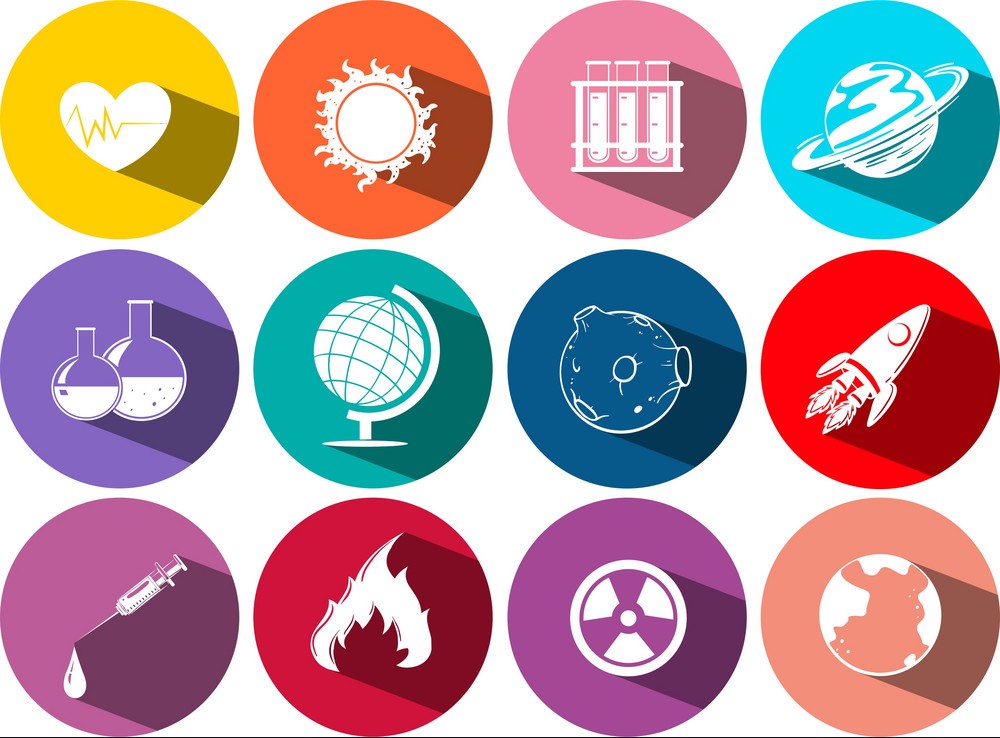By Dr. Kariuki Muigua, PhD (Leading Environmental Law Scholar, Policy Advisor, Natural Resources Lawyer and Dispute Resolution Expert from Kenya), Winner of Kenya’s ADR Practitioner of the Year 2021, ADR Publisher of the Year 2021 and CIArb (Kenya) Lifetime Achievement Award 2021*
It has been argued that science and technology can provide effective solutions to most, if not all, environmental problems facing the world. In the context of environmental management, environmental science studies the mechanisms and processes underlying our interactions with the natural environment whereas environmental technology allows application of such knowledge through actions geared towards environmental protection and conservation. Technology not only refers to machines and equipment, but also includes the knowledge, abilities, skills, processes and systems necessary to facilitate environmental conservation and protection. To this extent, technology has been classified as soft technology which entails information, training, research and capacity building and hard technology comprising of equipment.
Science and technology have resulted in many environmental problems but can also be key to addressing environmental concerns such climate change, waste management and environmental degradation. It has been described as a double edged sword capable of both doing and undoing environmental damage. Most environmental challenges such as global warming and climate change can be attributed to technological innovations since they are majorly caused by industrial pollution and fuel emissions from motor vehicles. Addressing these environmental concerns requires the input of science and technology through measures such as reducing greenhouse gases, conserving biological diversity, providing clean energy and expanding the adoption of green technologies for climate change mitigation.
Environmental management and decision making in Kenya is governed by laws, regulations, and policies. Due to the shortcomings of such laws, regulations and policies, there is need for these processes to be informed by scientific evidence. Indeed, science has the ability to remedy the shortcomings of laws and regulations through effective solutions tailor made to specific problems. The outbreak and spread of the Covid-19 pandemic is a clear example. Whereas countries have applied laws such as lock downs, curfews, quarantine and travel restrictions, spread of the virus still continues and the most effective solution to the pandemic would be through scientific knowledge and research to discover a cure and a viable vaccine. In the context of environmental management, there is need to link law and science in order to ensure effective environmental management.
In Kenya, the Constitution obligates the state to recognize the role of science and indigenous technologies in the development of the nation. To this effect, strides have been made towards the use of science and technology in environmental management. The ban on the manufacture, importation, supply, distribution and use of plastic bags and the subsequent adoption of woven bags has helped to curb environmental pollution. However, more needs to be done to integrate the use of science and technology in environmental management in Kenya. Adoption of cleaner technologies in such areas as transport, energy production and food production can be an effective preventive measure. Scientific knowledge is also useful in helping the citizenry adopt healthy lifestyles for a better, cleaner and healthier environment.
Some of the measures that can be adopted towards integrating the use of science and technology in environmental management in Kenya include:
(a) Industrial Waste Treatment
In Kenya, most of the waste discharged from industries is not treated before recycling or disposal. This poses health risks and causes damage to the environment since such waste is often discharged into water sources. Consequently, the industries involved in pollution have found themselves at war with environment entities including the National Environment Management Authority. Some of the measures that have taken by NEMA include closure of industries allegedly engaged in these acts. However, with recent reports of industrial pollution of river sources such as the Nairobi River, questions still linger on the effectiveness of measures adopted in dealing with this challenge.
Industrial pollution is a global problem which is not alien to Kenya. Scientific measures that have been adopted to deal with industrial waste include use of materials such as zeolites, geopolymers, activated carbons and nanomaterials due to their characteristics such as ion exchange capacity, adsorption and photocatalytic action. However, use of science and technology in industrial waste treatment has not been fully appreciated in Kenya. NEMA acknowledges that waste treatment technologies have not been fully embraced in the country which can be attributed to a number of factors such as lack of awareness and knowledge of such technologies; inadequate funding; limited technical competence and slow adoption of modern technological options. There is need for the use of science and technology in industrial waste management in order to enhance environmental management and protection.
(b) Adoption of Green and Clean Technologies
Green technology is an umbrella term that refers to the use of science and technology to create products and processes that are environmentally friendly for sustainable development. Clean technology refers to products or services that improve operational performance while reducing costs, energy consumption, waste or negative effects on the environment. These technologies can be used to protect the environment and in some instances repair damage done in the past. They provide the best eco-friendly option to ensure future sustainability. Such technologies include recycling of waste and use of renewable sources of energy solar, wind and geothermal energy.
Kenya has made some significant strides towards the adoption of green and clean technologies especially in the area of renewable energy. The country has been ranked as the largest producer of renewable energy in Africa with 70% of its electricity generation coming from renewable sources such as geothermal, hydropower, wind and solar sources. The government through the National Environment Management Authority imposed a ban on plastic carrier bags which has led to the use of eco-friendly non-woven bags. Such measures are to be lauded since they offer significant promise in the country’s endeavour towards green and clean technologies. There is however need for more measures towards this endeavour such as the adoption of agricultural methods and technologies that are eco-friendly as opposed to the polluting and dangerous chemicals.
(c) Climate Change Mitigation
The United Nations Framework Convention on Climate Change (UNFFCC) defines climate change as change of climate which is attributed directly or indirectly to human activities which alter the composition of the global atmosphere and which are in addition to natural climate variability observed over comparable time periods. Climate change has become a global concern in the 21st century and has been a dominant subject in political and scientific discussions. It is majorly caused by human activities that lead to atmospheric concentration of green-house gases such as burning of fossil fuels, deforestation and increase in carbon dioxide levels. In order to curb this problem, nations under the Paris Agreement have come together under a common cause to undertake ambitious measures aimed at aimed at combating climate change and adapting to its effects. The Agreement is aimed at holding the increase in the global average temperature to well below 2°C above pre-industrial levels and pursuing efforts to limit the temperature increase to 1.5°C above pre-industrial levels in recognition that this would significantly reduce the risks and impacts of climate change.
The Agreement recognises the role of science in climate change mitigation and calls upon states to adopt a country-driven, gender-responsive, participatory and fully transparent approach guided by the best available science and, as appropriate, traditional knowledge, knowledge of indigenous peoples and local knowledge systems (emphasis added). Kenya like the rest of the world is faced with the threat of climate change. The Kenya National Adaptation Plan acknowledges the role of science, technology and innovations matched to local needs and risks towards climate change mitigation. It proposes thoughtful prioritisation of research funding and policy to encourage innovation that will grow Kenya’s knowledge-based economy, building resilience through climate-compatible development whilst also encouraging the expansion of technology and expertise exports. The country should be more proactive in adoption of technological and scientific measures aimed at curbing climate change such as the use of clean energy sources.
*This article is an extract from the Article: “Utilising Science and Technology for Environmental Management in Kenya,” Journal of Conflict Management and Sustainable Development Volume 8(2), p. 172 by Dr. Kariuki Muigua, PhD, Kenya’s ADR Practitioner of the Year 2021 (Nairobi Legal Awards), ADR Publisher of the Year 2021 and ADR Lifetime Achievement Award 2021 (CIArb Kenya). Dr. Kariuki Muigua is a foremost Environmental Law and Natural Resources Lawyer and Scholar, Sustainable Development Advocate and Conflict Management Expert in Kenya. Dr. Kariuki Muigua is a Senior Lecturer of Environmental Law and Dispute resolution at the University of Nairobi School of Law and The Center for Advanced Studies in Environmental Law and Policy (CASELAP). He has published numerous books and articles on Environmental Law, Environmental Justice Conflict Management, Alternative Dispute Resolution and Sustainable Development. Dr. Muigua is also a Chartered Arbitrator, an Accredited Mediator, the Africa Trustee of the Chartered Institute of Arbitrators and the Managing Partner of Kariuki Muigua & Co. Advocates. Dr. Muigua is recognized among the top 5 leading lawyers and dispute resolution experts in Kenya by the Chambers Global Guide 2022.
References
Ali, M., Model of Green Technology Adaptation in Small and Medium –Sized Tannery Industry, Journal of Engineering and Applied Sciences, 12 (4), 2017 68 Kenton. W., Green Tech, available at https://www.investopedia.com/terms/g/green_tech.asp (accessed on 29/03/2020).
De Luca. P et al, Industrial Waste Treatment by ETS-10 Ion Exchanger Material, available at https://www.mdpi.com/1996-1944/11/11/2316 (accessed on 28/03/2020).
Huesemann. M.H., ‘Can Pollution Problems Be Effectively Solved by Environmental Science and Technology? An Analysis of Critical Limitations, Ecological Economics, Volume 37, Issue 2, May 2001, pg 271-287.
Human Rights Dimension of Covid-19 Response, available at https://www.hrw.org/news/2020/03/19/human-rights-dimensions-covid-19-response (accessed on 03/04/2020).
Juma. C., ‘Exponential Innovation and Human Rights: Implications for Science and Technology Diplomacy’, Science, Technology and Globalization, February, 2018.
Kamau. J., How Nairobi River Lost Pollution Battle, Daily Nation, Monday, August 19, 2019.
Moore. J.W et al, Towards Linking Environmental Law and Science, available at https://www.facetsjournal.com/doi/pdf/10.1139/facets-2017-0106 (accessed on 01/04/2020)
Muigua.K., Reconceptualising the Right to a Clean and Healthy Environment in Kenya, available at http://kmco.co.ke/wp-content/uploads/2018/08/Right-To-Clean-And-Healthy-Environment-In-Kenya.docx-7th-september-2015.pdf (accessed on 04/04/2020).
Muigua. K., Nurturing Our Environment for Sustainable Development, Glenwood Publishers Limited, 2016.
National Assembly Departmental Committee on Environment and Natural Resources, Report on an Inquiry Into Complaints of Environmental Pollution, available at http://www.parliament.go.ke/sites/default/files/2019- 09/LDK%20REPORT_compressed.pdf, accessed on 28/03/2020.
National Environment Management Authority (NEMA), Green Initiatives in Kenya, available at http://nema.go.ke/images/Docs/Media%20centre/Brochures/Green%20Economy%2 0Booklet.pdf (accessed on 29/03/2020).
National Environment Management Authority, ‘The National Solid Waste Management Strategy’, available at http://www.nema.go.ke/images/Docs/Media%20centre/Publication/National%20Soli d%20Waste%20Management%20Strategy%20.pdf, accessed on 28/03/2020.
National Environment Management Authority (NEMA), Factories Closed, Owners Arrested for Polluting Environment, available at http://www.nema.go.ke/index.php?option=com_content&view=article&id=298:facto ries-closed-owners-arrested-for-polluting-environment&catid=10:news-andevents&Itemid=454 (accessed on 06/04/2020).
National Environment Management Authority, 2 years on: Say no to plastic bags, available at http://www.nema.go.ke/index.php?option=com_content&view=article&id=296&cati d=2&Itemid=451 (Accessed on 20/03/2020).
Nichols. M.R., ‘How Technology Can Save the Environment’ available at https://born2invest.com/articles/technology-save-environment/ (accessed on 03/04/2020).
Owusu. P.A., & Asumadu-Sarkodie. S, A Review of Renewable Energy Sources, Sustainability Issues and Climate Change Mitigation, available at https://www.tandfonline.com/doi/pdf/10.1080/23311916.2016.1167990?needAccess =true (accessed on 30/03/2020).
Srinivas. H., ‘Introduction: Technology and Environment’ available at http://www.gdrc.org/techtran/introduction.html (accessed on 18/03/2020).
Voulvoulis.N., & Burgman.M.A., The Contrasting Roles of Science and Technology in Environmental Challenges, Critical Reviews in Environmental Science and Technology, Volume 49, 2019, issue 12.
United Nations Framework Convention on Climate Change (UNFCC), United Nations, 1992, available at https://unfccc.int/resource/docs/convkp/conveng.pdf (accessed on 30/03/2020).
Wen-Hsiang, K.,The Role of Science in Environmental Protection: Is the Development of Environmental Law Toward More Protective and Productive Way, or Distorted to Inequality, Through the Involvement of Science? (2009). APSA 2009 Toronto Meeting Paper, Available at SSRN: https://ssrn.com/abstract=1450811(accessed on 03/04/2020).





 Lawyers2 years ago
Lawyers2 years ago
 News & Analysis3 years ago
News & Analysis3 years ago
 News & Analysis3 years ago
News & Analysis3 years ago
 Lawyers2 years ago
Lawyers2 years ago
 News & Analysis3 years ago
News & Analysis3 years ago
 News & Analysis1 year ago
News & Analysis1 year ago
 News & Analysis1 year ago
News & Analysis1 year ago
 Lawyers2 years ago
Lawyers2 years ago





























